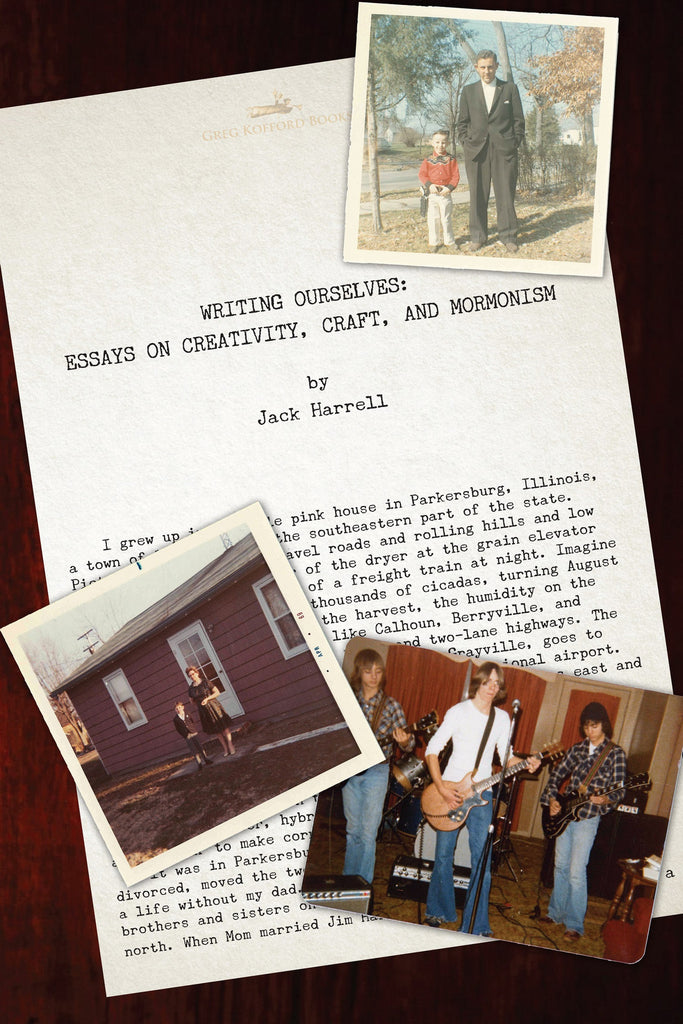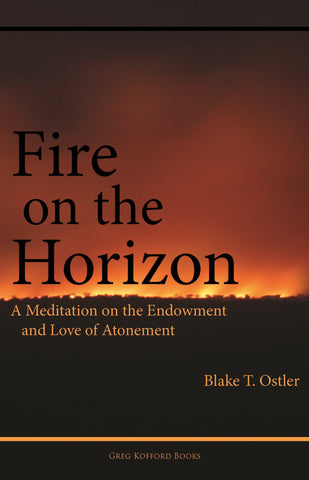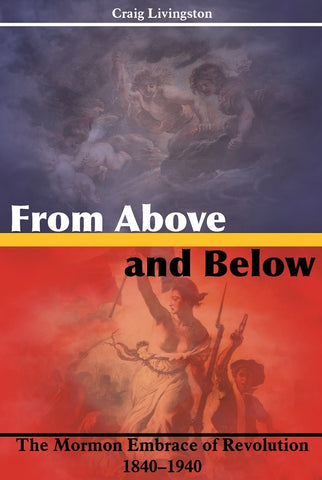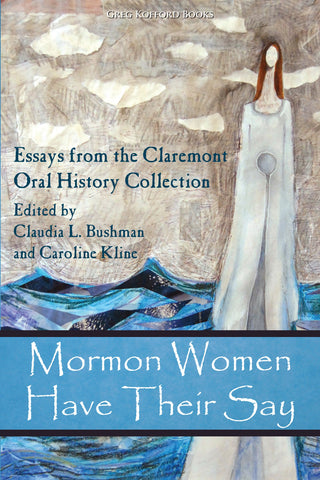Writing Ourselves: Essays on Creativity, Craft, and Mormonism
$18.95
By Jack Harrell
- “Thought-provoking, inspiring, and beautifully written.” — Margaret Blair Young
- “You need to add this book to your library.” — Eric Samuelsen
- “[Harrell] speaks to the function of language and narrative as communal acts.” — Association for Mormon Letters
- “It’s not just about writing, but how to live a better life.” — Exponent II
- “Original and insightful, at times daring.” — Dialogue: A Journal of Mormon Thought
2016 Best Literary Criticism Award, Association for Mormon Letters



Available in ebook for your Kindle, Nook, Kobo, Google Play, and Apple.
Also available through Amazon.
Download a free sample preview.
Book Description:
Continuing a conversation as old as Mormonism itself, Jack Harrell explores the relationship between Mormonism and the writer. Mormons see the universe in mythic proportions. Their God is a creator, their devil a destroyer. This makes meaningful conflict fundamental to their worldview, and begs the terms for religious redemption, as well as the redemptive power of art. Harrell urges writers to be authentic as they embrace the difficulties inherent in the creative process. His essays blend faithful intellectual inquiry, personal narrative, research, and application to offer insights for anyone who cares about writing, creativity, and the human condition.
AuthorCast Interview with the Author:
Comprehensive Table of Contents:
.
Who Is This Book For?
1. The Little Pink House
2. The Creative Process: A Theory In Five Steps
The Idea: Conception
Complication
The Wall
Breakthrough
The Final Product
Conclusion
3. What Violence In Literature Must Teach Us
4. The Episodic And Epiphanic In Contemporary Fiction
5. Advice For Writers
Make Time to Write
Be Authentic
Strive for the Philosophical
Embrace the Difficulties
6. Telling The Truth: Teaching Creative Writing To Mormon Students
Not So Peculiar
Telling the Truth
Not Afraid of Believing
Writing for Adults
7. The Thirteenth Article Of Faith As A Standard For Literature
8. Making Meaning As A Mormon Writer
9. Creative Writing, Mormon Theology, And The Illusion Of Independent Agency
Authenticity
It’s Writing Me
The Sieve
Stalemate
The Mormon Doctrine of Agency: Aesthetic Implications
Conclusion
10. Human Conflict And The Mormon Writer
11. Toward A Mormon Literary Theory
Criticism and Theory: What is the Difference?
A Theory Rooted in Mormon Theology
The Mormon Cosmology
A Mormon Literary Theory: One Approach
The Mythic Proportions of Mormonism
Building Culture, Building Zion
The Word
The Redemptive Power of Art
Ethics and Literature
Postmodernism
The New Sincerity, or, Post-Postmodernism
Conclusion
12. A Hicksville Success
13. Verne And Gusty
14. Leaving Home And Coming Back Again
Q&A with the Author:
.
Can you name a few writers who have had the greatest influence on you? What draws you to their work?
My favorite writer is Flannery O’Connor. Her fiction is fantastic, and her essays and letters on writing are full of insight and humor. Back in 1994, at Illinois State University, I did my master’s thesis on her novel Wise Blood. Her work speaks to a lot of Mormons because she’s unapologetic about her Catholic faith. Though her writings are obviously religious, she doesn’t slip into oversimplification or didacticism. And plenty of readers who aren’t religious find satisfaction and meaning in her work. Her writing works on a number of levels. I also appreciate writers like Wallace Stegner, Raymond Carver, and Willa Cather.
Among Mormon writers, Levi Peterson is very important, I think—a must-read. And I think any Mormon interested in good writing should read Virginia Sorensen’s 1963 story collection Where Nothing is Long Ago: Memories of a Mormon Childhood.
I’m drawn to small-town characters and settings in the contemporary West and the Midwest, probably because that’s the world I know best. That’s what I’m interested in writing about, too—telling the stories of ordinary folks in these small towns.
Lately I’ve been reading contemporary philosophers amenable to a religious viewpoint. John Polkinghorne is one I like. He’s an Anglican priest and theologian with two PhDs in physics. I’ve also learned a great deal from the writings of Roger Scruton, especially from his books The Face of God, The Soul of the World, and Beauty.
The last book I read was a Greg Kofford publication: Future Mormon, by Adam S. Miller. It’s great to see a tradition of thoughtful scholarship continue among Latter-day Saints like Miller.
Some label the religious seeker as being on a quest for an epiphany. Can you discuss how epiphany in a spiritual sense is related to epiphany in a creative sense?
Long before James Joyce made it a literary term, the word “epiphany” was a religious term referring to some profound insight from the divine. I believe most religious people, no matter what their faith, seek communion with the divine, or just a connection with something beyond themselves. I think very few people would see the human race as the greatest force or power in the universe; and even if they do, they’d still admit those times when we reach for something greater within us. Isn’t this the quest of most art? To reach for something higher?
Of course, there are a few who would say, “There’s nothing great within us, nothing great beyond us. Therefore, art should express that. Art should be against epiphanies, against transcendence. Art should be being emphatically ugly because ugliness and entropy is all we have.” But that’s a pretty rare position to take, and pretty cynical too.
It seems to me that the very act of creation is rooted in a desire to make something outside of ourselves that expresses what we see or feel within. Maybe every artist is just trying to meet himself or herself, trying to understand and recognize what’s there.
In the sixth chapter, you discuss teaching students to write. You mention the Mormon “struggle to tell the truth.” Why do Mormons struggle with superficiality in their writing?
It’s not just a Mormon struggle. It’s human nature to fall back on easy answers and struggle to tell the truth. We’re all guilty of horizontal thinking: worrying about what the person next door thinks rather than doing what we know to be true. Honesty with ourselves is a normal human struggle too. We all create fictions to justify the way we live and the way we see the world. Some of the lies we tell emerge from our good intentions. We just don’t want to hurt someone’s feelings.
It’s the same with Mormons. We don’t want to hurt people, we’re worried about what our neighbors think, and we want to keep things pleasant. But life isn’t always pleasant. Conflict is at the heart of meaningful stories. If we avoid conflict, we hamstring good stories. The scriptures are full of conflicts. Church history isn’t the simple story that some once thought it to be. There are all kinds of complex layers at work in the scriptures and in Church history and in all our lives.
I think, more and more, we’re going to see that easy answers don’t cut it. We need to face complexities, not avoid them. As the teachings of the Church grow more at odds with secular society, we’re going to have to embrace the complexities of our own position in order to survive. This involves telling the truth.
One of the central messages of Mormonism is that at the potential for redemption is at the center of our existence. The need for redemption assumes that some kind of fall or loss came first. That’s a level of complexity right there—much more than simply saying “the universe is essentially good.” Fall and redemption transcend superficiality every time.
Can you give your take on what makes literature virtuous or praiseworthy?
Yes, I talk about this in an essay on the 13th Article of Faith and how it can be a standard for judging literature.
The root of the word “virtue,” means “manliness,” or, as we’d put it today, “strength.” Implied in that word are concepts like “integrity,” “vigor,” and “power.” In Mormon culture the word “virtue” has become nearly synonymous with “chastity.” Chastity is one aspect of virtue, but the meaning of that word is much broader. I’d say a virtuous book is one that’s powerful, meaningful, and truthful.
“Praiseworthy,” simply means worthy of praise. In that sense, literature that gets good reviews from those who really know what they’re talking about can be called praiseworthy. A reader has to think critically about the praise that comes from someone who simply wants to boost sales, regardless of the quality of the work. The 13th Article of Faith provides a great standard for measuring all these things.
You state that Mormon fiction tends to be “essentially positive in its outlook,” can you summarize why and how that might be a stumbling block towards greater authenticity?
Philosophically, I don’t think an essentially positive outlook is a stumbling block to authenticity. I’d say the same is true in a Mormon theological context as well. In the Mormon view of existence, there is always the potential for a positive outlook, and a positive outcome, because of the atonement. The catch comes when moral agency is introduced. Every child of God can potentially be saved and exalted, but not everyone will, because of agency, because of the way we each can use or misuse our agency.
Maybe it’s this business of agency that introduces a stumbling block to authenticity. When a writer forces a tidy resolution on a character or story, that’s a violation of the “agency,” if you will, of the characters in the story. Another stumbling block arises when a writer approaches the subject matter with a kind of oversimplified “all is well” outlook.
I think the Mormon writer who really understands the depths of Mormonism itself will take a more complex view on writing and of the world. That’s one of the recurring arguments I make in the book, that if we really understand a live our faith, we’ll solve a lot of the problems that lead to bad art.
Mormon writers seem to do well in science fiction and fantasy genres, but struggle in general fiction. Why do you think that is; and in what ways can Mormonism can add a unique voice to general fiction?
I think one factor has to do with language and content. Often a person can write (or read) a science fiction or fantasy novel without dealing with the challenges of vulgar language and sexual scenes. Certainly this isn’t true of all sci-fi/fantasy. But it’s easier to choose authors who don’t go there.
In the mainstream literary genre, sex and language have become pretty common. There’s a reason for this. In the twentieth century, literary fiction grew more transparent about representing the daily lives of ordinary people. People have sex, people swear, and contemporary fictions doesn’t shy away from that. I’m not saying this is a good thing. It’s just the way it is.
I do think that contemporary culture is more vulgar, more irreverent, less sensitive. The Greek root of the word “aesthetic” means “sensitive.” Contrast that word with the word “anesthetic,” which means “the loss of feeling.” Contemporary culture may want to boast that everything is “out there,” that nothing is taboo. And certainly there’s virtue in openness. But we have to be careful. People who go too far into irreverence and subversion might find that they lose something in the bargain.
The language and content factor may not be the reason Mormon writers shy away from general, literary fiction. That’s just a supposition on my part because I really don’t know the answer. I just know that I care more about the problems of a school bus driver living in Rigby, Idaho, than I care about the war between the Ledmendons and the Allickakakials on Zarnack 5.*
Honestly, I think general, literary fiction invites a more thoughtful and measured tone. No one listens to NPR because they want caustic, sensational commentary. Recently l read a great literary novel by Marilynne Robinson, a novel about a Midwestern pastor’s last words to his young son, whom he fathered late in life. The novel is very real about the lives it depicts, but there’s nothing there that would scandalize your grandmother. I’d love to see more novels by Mormons about real Mormons with the meaningful problems that I see every day in my own life and in the lives of those around me. The stories are there, waiting to be told.
And this may not be about writers at all. It may be a reflection of the readers. Could it be that Mormon writers gravitate toward speculative fiction primarily because that’s what sells?
It’s hard to fault writers who want to sell books and are willing to do what it takes to make that happen.
* Editorial note: Greg Kofford Books wishes to apologize to any residents of Zarnack 5 who may find offense in the author's disregard for the ongoing struggles between the Ledmendons and Allickakakials.
Listen to Jack Harrell read "Making Meaning as a Mormon Writer"
2016 AML Award Citation:
“The Association of Mormon Letters is pleased to present the award for Criticism to Jack Harrell for his collection of essays on literary theory, creative writing strategies, Mormon literary history, and his advice to would-be Mormon writers and critics, Writing Ourselves: Essays on Creativity, Craft, and Mormonism, published by Greg Kofford Books. The best of the essays, “Toward a Mormon Literary Thought,” is a worthy successor to the work of Eugene England, one of the author’s heroes. And rightly so. At his most engaging, Harrell speaks bluntly, knowingly, and aspirationally regarding the plight of the serious Mormon writer, and by extension, their audience. His advice to writers to be honest and to embrace their weirdness, among other things, seeks to reframe the discussion of Mormonism’s cultural debits and credits into a workable and motivational mode of authentic creativity.”
Praise for Writing Ourselves:
“‘Embrace your weirdness!’ says Jack Harrell in his new book. That line should be a bumper sticker, it's so good. What a gift this book is to LDS writers and artists who are forever self-censoring and experimenting! ‘As Mormon writers.’ says Harrell, ‘we should be suspicious of our own stereotypes, our own snap judgments. All good writers seek to move their fiction beyond stereotypes, political and social agendas, and institutional constraints. Mormon theology is remarkably amenable to this complex view of art.’ Harrell’s book is for everyone interested in creativity, and particularly for Mormons wondering what a Latter-day Saint literary criticism should look like. It is a thought-provoking, inspiring, and beautifully written book. I support ‘embracing our weirdness,’ and I enjoy Harrell's examples of his own particular weirdness thoroughly.” — Margaret Blair Young, creative writing faculty at Brigham Young University, and co-author of the Standing on the Promises series
“Jack Harrell's essays on writing and Mormonism and life reflect a life spent in the service of a thoughtful and compassionate humanism. Harrell values well crafted characters, stories with epiphanic power and impact, narratives of consequence, not just incident. I found his collection all the more provocative when I disagreed with him. And that's a compliment; Harrell invites us to a conversation, not a sermon. His prose will hook you; his argument always engages. If you care about Mormonism and good writing and the moral implications of fiction, you need to add this book to your library.” — Eric Samuelsen, playwright and former president of the Association for Mormon Letters
“As one who does not consider himself a creative writer (at least not a fiction writer), I was a bit hesitant to attempt a review of a book almost entirely dedicated to the art of writing. Yet, as I made my way from essay to essay, it became clear to me that Harrell was not merely talking about writing, but was describing the essence of Creation itself.” — Walker Wright, Worlds Without End
“[Harrell] speaks to the function of language and narrative as communal acts. In his exploration of literature as an ethical act intended to foster moral goodness, he encourages writers to create narrative worlds and persons that feel as real as the space we inhabit and the people we encounter in real life.”— Tyler Chadwick, Association for Mormon Letters
“This book definitely gives me the motivation to write and explore my thoughts and organize the stresses of life through my writing. I recommend this book not just to writers, but to everyone. It’s not just about writing, but how to live a better life.”— Dani Addante, Exponent II
“Harrell’s text is original and insightful, at times daring. . . In this collection of essays, Harrell has invested the most precious and personal parts of his humanity: faith, family, and art.”— Jennifer Quist, Dialogue: A Journal of Mormon Thought 50:1 (Spring 2017)
About the Author:
 A native of southeastern Illinois, Jack Harrell moved to Utah and joined the Mormon Church at age twenty-one. He has published a novel, Vernal Promises, and the fiction collection A Sense of Order and Other Stories. He teaches writing at Brigham Young University—Idaho.
A native of southeastern Illinois, Jack Harrell moved to Utah and joined the Mormon Church at age twenty-one. He has published a novel, Vernal Promises, and the fiction collection A Sense of Order and Other Stories. He teaches writing at Brigham Young University—Idaho.
More Information:
156 pages
ISBN 978-1-58958-754-0 (paperback)
Published June 2016






Share this item: